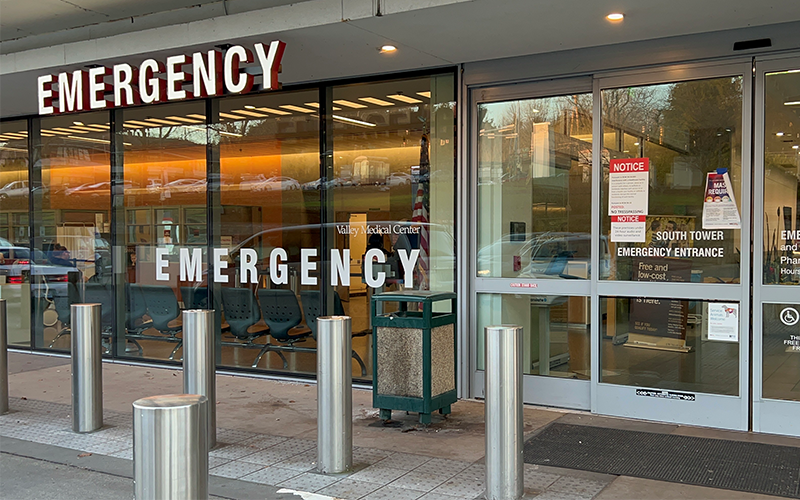
Valley Medical Center is experiencing higher than usual numbers of patients at our hospital and clinics due to respiratory illnesses in our community. This is causing longer wait times in our Emergency Department and Urgent Care Clinics. Our goal is to keep you as healthy as possible and share information about what to do if illness should strike and when to seek medical attention.
Call 9-1-1 if you suspect you or a loved one are experiencing a life-threatening emergency. This can include severe difficulty breathing, severe abdominal pain, or suspected heart attack, stroke, seizure or drug overdose.
Know Where to Go
You may be able to get help through your primary care provider or a telehealth appointment. Learn more in our Know Where to Go guide, including whether you should go to Urgent Care or the Emergency Department.
You can check Urgent Care wait times and learn more about Urgent Care telehealth visits at valleymed.org/wait-times. NOTE: “Get in Line” feature may not be available during high-demand times.
Symptom Management
Antibiotics are not effective against viruses. If you are dealing with a respiratory virus, the most important thing you can do is manage the symptoms:
- Manage fever and pain with over-the-counter fever reducers and pain relievers, such as acetaminophen or ibuprofen. (Never give aspirin to children.)
- Drink enough fluids to prevent dehydration (loss of body fluids). This can include water, Gatorade, or fruit juice like orange juice.
- Talk with your healthcare provider before giving your child nonprescription cold medicines. Some medicines contain ingredients that are not good for children.
- Get plenty of rest.
- Use a humidifier to help with cough and congestion.
- If you need a cough suppressant, try Dextramethorphan or Delsym.
- Use nasal saline for nasal irrigation and congestion.
- Warm liquids can also help with cough, such as tea or just warm water.
You can also use our interactive symptom checker to evaluate whether your symptoms can be taken care of at home or need medical attention.
Learn more about 8 common illnesses here, including how they can be treated and how long they last.
Thank you for your patience as we work hard to get everyone the care they need.

